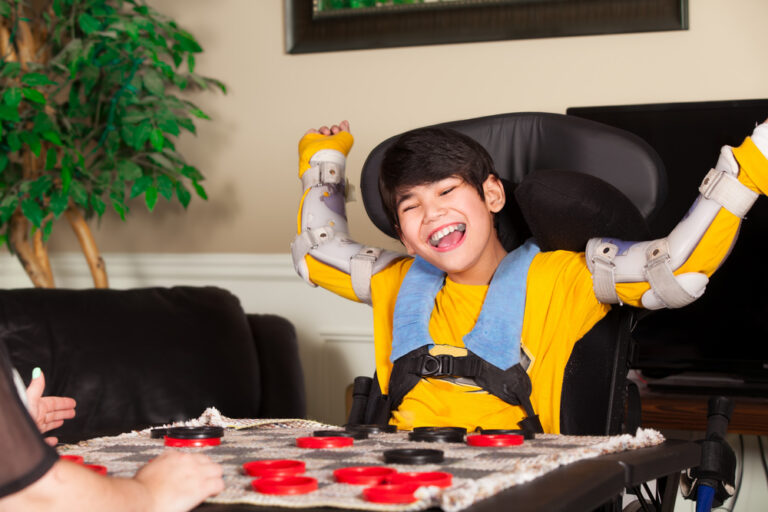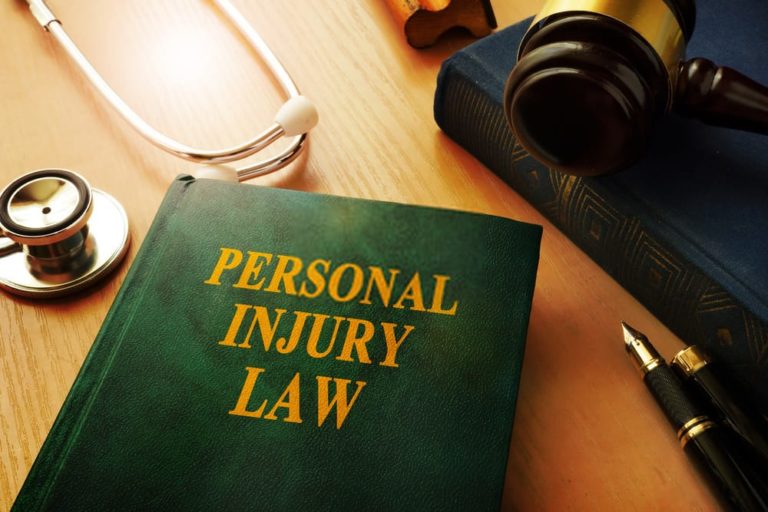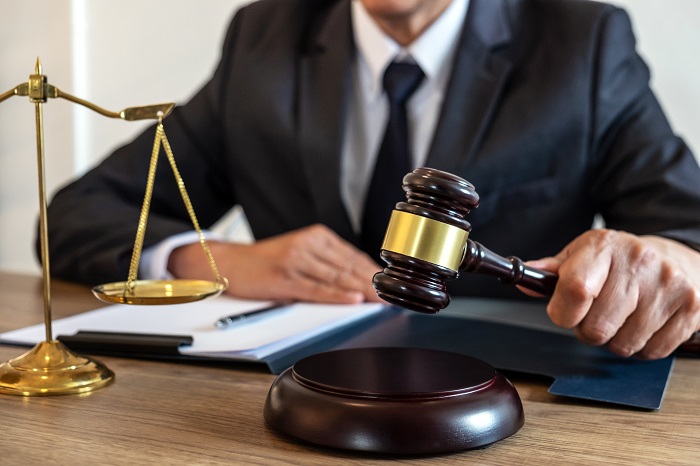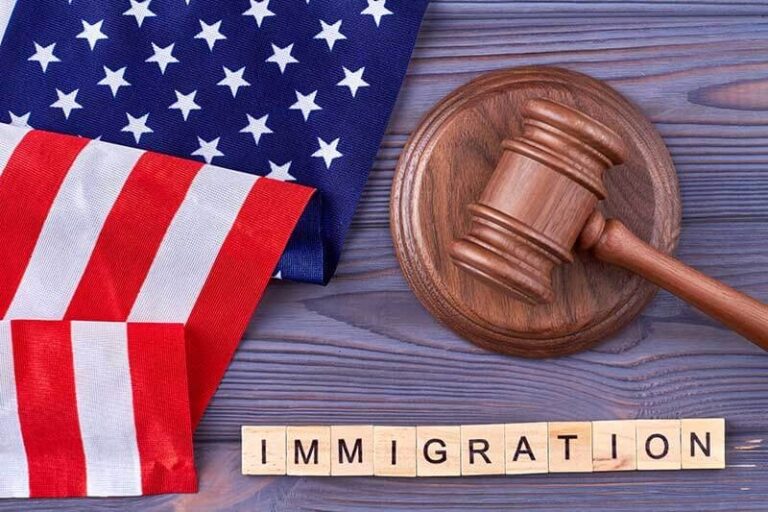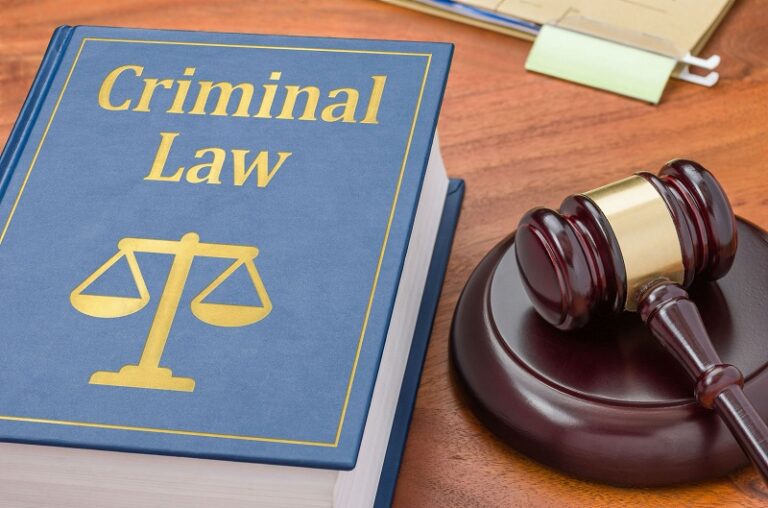Defining Cerebral Palsy: A Medical Overview
Cerebral Palsy (CP) is a group of neurological disorders that affect movement, muscle tone, and posture. It is caused by damage to the developing brain, often before birth. CP can manifest in various forms, with symptoms ranging from mild to severe, and can include involuntary movements or atypical gait, as well as difficulty with fine motor skills.
The condition is classified into four main types:
- Spastic Cerebral Palsy: Characterized by stiff muscles and awkward movements.
- Dyskinetic Cerebral Palsy: Involves uncontrolled movements.
- Ataxic Cerebral Palsy: Causes problems with balance and coordination.
- Mixed Cerebral Palsy: A combination of the above types.
Early signs of CP may include delays in reaching motor skill milestones, such as sitting up or crawling. It is crucial to understand that CP is a non-progressive disorder, meaning the brain damage does not worsen over time. However, the symptoms can change as a child grows and develops. Diagnosis typically involves a combination of physical exams, medical history analysis, and various tests to rule out other conditions.
Cognitive and Physical Challenges in the Classroom
Students with cerebral palsy face a unique set of cognitive and physical challenges that can impact their learning experience. These challenges vary widely depending on the individual’s specific condition and abilities.
Cognitively, some students may experience difficulties with attention, processing speed, and memory. These challenges can make traditional teaching methods less effective, necessitating tailored instructional strategies to enhance understanding and retention.
Physically, the classroom environment can present significant obstacles. Limited mobility may restrict a student’s ability to engage in certain activities or access resources. Fine motor skill impairments can affect writing and the use of educational tools, while speech difficulties can hinder communication and participation.
To address these challenges, educators can implement several strategies:
- Utilize visual aids and hands-on materials to reinforce learning.
- Allow for additional time on tasks and tests.
- Modify classroom layout for easier navigation and access.
- Incorporate speech-to-text software or other assistive technologies to facilitate communication.
By recognizing and proactively addressing these cognitive and physical challenges, educators can create a more inclusive and effective learning environment for students with cerebral palsy.
The Importance of Early Diagnosis and Intervention
The early years of a child’s life are critical for cognitive, social, and emotional development. In the case of children with cerebral palsy, early diagnosis and intervention can significantly influence their educational and developmental outcomes. Recognizing the signs of cerebral palsy early allows for a quicker start to interventions that can improve a child’s adaptive skills and overall quality of life.
Intervention strategies may include a combination of physical therapy, speech therapy, and occupational therapy, each tailored to the child’s unique needs. These therapies can help children develop motor skills, communication skills, and daily living skills. Moreover, early intervention programs often provide support and education for families, enabling them to create a nurturing and stimulating environment at home.
Key benefits of early diagnosis and intervention include:
- Enhanced motor function and reduced disability
- Improved communication and social interaction abilities
- Greater independence in daily activities
- Prevention of secondary complications
- Support for families in understanding and managing the condition
It is essential for educators, healthcare providers, and families to work together to ensure that children with cerebral palsy receive the early support they need. This collaborative approach paves the way for a more inclusive educational experience and a better quality of life.
Designing Inclusive Classrooms for Diverse Needs
Adapting Physical Spaces for Accessibility
Creating an accessible learning environment is crucial for students with cerebral palsy, as it allows them to navigate and utilize the classroom independently. This involves the removal of physical barriers and the thoughtful design of spaces that accommodate mobility aids and equipment.
Key considerations for adapting physical spaces include:
- Ensuring doorways and hallways are wide enough for wheelchair access.
- Installing ramps and elevators to replace or complement staircases.
- Providing adjustable furniture, such as desks and chairs, that can be tailored to each student’s needs.
- Designing accessible restrooms with features like grab bars and sufficient space for maneuvering.
Beyond structural changes, it’s also important to consider the placement of educational materials. Items should be within easy reach for all students, and the classroom layout should promote an inclusive atmosphere where every student feels part of the group. By prioritizing accessibility, educators can foster a sense of belonging and empower students with cerebral palsy to engage fully in their educational journey.
Incorporating Assistive Technologies
The integration of assistive technologies in the classroom is a game-changer for students with cerebral palsy. These tools are designed to bridge the gap between a student’s potential and their physical limitations, enabling them to engage more fully with the curriculum.
- Adaptive Keyboards and Mice: Customized input devices cater to various motor skills, allowing students to interact with computers effectively.
- Communication Devices: Augmentative and alternative communication (AAC) devices empower those with speech impairments to express themselves.
- Software Solutions: Text-to-speech and speech-to-text programs assist in reading and writing tasks, while educational software can be tailored to individual learning styles.
The selection of appropriate technologies often involves an assessment by a multidisciplinary team, ensuring that each student’s unique needs are met. With the right support, these technologies can significantly reduce the barriers to education that students with cerebral palsy face, fostering a sense of independence and self-confidence.
Creating a Supportive Learning Environment
A supportive learning environment is crucial for students with cerebral palsy, as it fosters both academic success and emotional well-being. This environment is characterized by understanding, patience, and a community that values diversity and inclusion.
Key elements of a supportive learning environment include:
- Open communication between teachers, students, and caregivers.
- Positive reinforcement to encourage effort and celebrate achievements.
- Strategies to reduce stress and anxiety, such as quiet zones or time-out spaces.
- Peer support programs to promote social interaction and understanding.
Teachers and school staff play a pivotal role in creating this nurturing atmosphere. They must be equipped with the knowledge and resources to meet the unique needs of these students. Resources like the Merck Manual Consumer Version, which has been providing trusted medical information since 1899, can be invaluable for educators seeking to understand the medical aspects of cerebral palsy and its implications in the classroom. By fostering a supportive learning environment, schools empower students with cerebral palsy to reach their full potential.
Personalized Education Plans for Students with Cerebral Palsy
Assessment and Goal Setting
The journey towards a tailored education for students with cerebral palsy begins with a comprehensive assessment. This process involves evaluating the student’s cognitive, physical, and emotional abilities to establish a baseline for personalized goal setting. Educators, therapists, and parents collaborate to identify the student’s strengths and areas for growth, ensuring that the educational plan is both challenging and achievable.
Key components of the assessment include:
- Observations of the student in various settings
- Standardized tests tailored to the student’s abilities
- Interviews with the student, family, and healthcare providers
Once the assessment is complete, specific, measurable, attainable, relevant, and time-bound (SMART) goals are set. These goals are designed to be flexible, allowing for adjustments as the student progresses. The ultimate aim is to foster a sense of accomplishment and to pave the way for continuous learning and development.
Curriculum Modifications and Accommodations
Tailoring the curriculum to meet the unique needs of students with cerebral palsy is a critical step in fostering an inclusive educational environment. Educators must consider both the content and delivery methods to ensure that learning is accessible and engaging for these students.
- Content Simplification: Breaking down complex concepts into simpler, more manageable parts can aid comprehension.
- Flexible Scheduling: Allowing more time for tasks and tests can reduce pressure and accommodate varying levels of physical ability.
- Alternative Assessment Methods: Utilizing oral presentations, projects, or portfolios as opposed to standard written exams can provide a more accurate measure of a student’s understanding.
In addition to these modifications, it is essential to provide accommodations that address the specific physical needs of each student. This may include:
- Ergonomic Seating: Chairs and desks that support posture and reduce fatigue.
- Assistive Devices: Tools such as adapted keyboards, touch screens, and speech-to-text software to facilitate communication and learning.
- Accessible Materials: Texts and resources in formats that are easy to handle and read, such as large print or audio books.
By implementing these strategies, educators can create a learning pathway that not only respects the challenges faced by students with cerebral palsy but also celebrates their potential and promotes academic success.
Collaboration with Multidisciplinary Teams
The success of personalized education plans for students with cerebral palsy hinges on the effective collaboration among multidisciplinary teams. These teams typically include educators, therapists, medical professionals, and family members, each bringing a unique perspective and expertise to the table.
Key steps in fostering this collaborative approach include:
- Establishing clear communication channels among all parties involved.
- Regularly scheduled meetings to discuss progress and adapt strategies as needed.
- Sharing of resources and information to ensure a cohesive approach to the student’s education and therapy.
This synergy not only enhances the educational experience but also ensures that the student’s comprehensive needs are met. It is a dynamic process that evolves with the student’s growth and changing needs, requiring ongoing commitment and flexibility from the team.
Engaging Therapeutic Approaches in Education
Integrating Occupational and Physical Therapy
Occupational and physical therapies are vital components in the educational journey of students with cerebral palsy. These therapies focus on enhancing students’ abilities to perform daily activities and participate fully in the classroom setting. By addressing the unique motor skills challenges that these students face, therapists can tailor strategies that promote greater independence and engagement in learning activities.
- Occupational Therapy (OT): OT practitioners work with students to improve fine motor skills, such as writing and using school tools, and to develop strategies for managing sensory processing issues that can affect focus and behavior in the classroom.
- Physical Therapy (PT): PT is aimed at improving gross motor skills, balance, and coordination. Physical therapists may also assist in adapting the physical environment to ensure safe and accessible movement within the school.
The integration of these therapies into the school day allows for a seamless approach to learning, where therapeutic goals are aligned with educational objectives. Collaboration between therapists, educators, and families ensures that each student’s plan is holistic and centered on their specific needs. This multidisciplinary approach not only supports academic achievement but also fosters social and emotional growth, preparing students for a more independent future.
Speech and Language Support in Schools
Effective communication is a cornerstone of learning, and for students with cerebral palsy, speech and language support in schools is vital. These services are tailored to address the unique challenges faced by each student, ranging from articulation difficulties to complex communication needs.
- Assessment by Speech-Language Pathologists (SLPs): SLPs play a crucial role in evaluating a student’s speech and language abilities and devising appropriate intervention strategies.
- Individualized Therapy Plans: Based on assessments, therapy plans may include exercises to improve clarity of speech, language comprehension, and alternative communication methods.
- Collaborative Efforts: SLPs often work alongside teachers and parents to ensure that communication strategies are reinforced across different settings, enhancing the student’s ability to participate fully in their education.
By integrating speech and language support, schools empower students with cerebral palsy to express themselves more effectively, participate in classroom discussions, and achieve academic success.
The Role of Play and Social Interaction in Learning
Play and social interaction are fundamental components in the educational journey of students with cerebral palsy. These activities are not only enjoyable but also serve as vital tools for learning and development. Through play, children can explore their environment, practice new skills, and engage in problem-solving tasks, all of which contribute to cognitive and motor development.
Social interaction complements play by providing opportunities for students to communicate, collaborate, and build relationships with peers. This interaction is crucial for developing social skills, emotional intelligence, and a sense of belonging. In an inclusive classroom setting, educators can facilitate these interactions by:
- Encouraging group activities that require teamwork and communication.
- Organizing games and play sessions that are adaptable to various abilities.
- Creating buddy systems that pair students with cerebral palsy with peers who can assist and motivate them.
Moreover, incorporating structured play and social learning goals into Individualized Education Programs (IEPs) ensures that these critical aspects of development are not overlooked. By recognizing the power of play and social engagement, educators can create a more dynamic and supportive learning environment that empowers students with cerebral palsy to thrive academically and socially.
Empowering Students and Families
Building Self-Advocacy and Independence
Fostering self-advocacy and independence in students with cerebral palsy is a critical step towards their empowerment. It involves teaching them to understand and communicate their needs, as well as to make informed decisions about their education and care.
- Identify individual needs: Each student should be encouraged to recognize their unique strengths and challenges.
- Develop communication skills: Effective communication is key to self-advocacy. Students should be taught various ways to express themselves, including the use of assistive technology if necessary.
- Promote decision-making: Students should be involved in setting their own goals and making choices about their learning experiences.
By equipping students with these skills, educators and parents lay the foundation for a future where individuals with cerebral palsy can lead more autonomous and fulfilling lives. Collaboration with legal services, such as those provided by Burnetti, P.A., can also be instrumental in ensuring that the long-term care needs of students are met and their rights are protected.
Family Involvement and Training
The active participation of families in the educational journey of students with cerebral palsy is crucial. It not only enhances the learning experience but also ensures that the support extends beyond the classroom. Training programs for families can equip them with the necessary skills to assist their children in daily activities and educational tasks.
Key areas of focus for family training include:
- Understanding the specific needs of their child
- Learning how to use and maintain assistive devices
- Developing effective communication strategies
- Managing behavioral challenges
By fostering a collaborative relationship between educators and families, schools can create a consistent and reinforcing learning environment. Workshops and resources provided to families can empower them to become proactive advocates for their child’s education and well-being. Moreover, this involvement is instrumental in building a network of support that encourages the student’s social and emotional growth.
Transitioning from School to Adult Life
The transition from school to adult life marks a significant milestone for students with cerebral palsy. It is a period that requires careful planning and support to ensure a smooth shift into post-secondary education, vocational training, or employment.
Key steps in this transition include:
- Identifying individual strengths, interests, and career aspirations.
- Exploring post-secondary education options and vocational programs that cater to diverse abilities.
- Establishing connections with adult service agencies and community resources.
Educators and families play a crucial role in facilitating this transition by providing guidance and advocating for necessary accommodations in the workplace or higher education settings. It is also essential to foster self-advocacy skills in students, empowering them to take charge of their futures and navigate the challenges of adult life with confidence.


